afterLoad (455.86KB) (510μs)
afterInitialise (1.28MB) (16.18ms)
afterRoute (826.27KB) (8.94ms)
beforeRenderComponent com_tags (20.62KB) (1.39ms)
afterRenderComponent com_tags (2.51MB) (130ms)
afterDispatch (27.5KB) (1.36ms)
beforeRenderRawModule mod_articles_category (READ MORE...) (423.86KB) (4.42ms)
Before Access::preloadComponents (all components) (50.9KB) (393μs)
After Access::preloadComponents (all components) (103.05KB) (598μs)
Before Access::getAssetRules (id:8 name:com_content) (840B) (15μs)
After Access::getAssetRules (id:8 name:com_content) (7.05KB) (39μs)
afterRenderRawModule mod_articles_category (READ MORE...) (1.17KB) (35.94ms)
beforeRenderRawModule mod_custom (BOOST YOUR IMMUNE DEFENSE) (6.45KB) (30μs)
afterRenderRawModule mod_custom (BOOST YOUR IMMUNE DEFENSE) (3.8KB) (229μs)
beforeRenderRawModule mod_tags_popular (Search) (2.36KB) (15μs)
afterRenderRawModule mod_tags_popular (Search) (40.85KB) (91.44ms)
beforeRenderRawModule mod_custom (Get additionel and more detailed knowledge ) (816B) (27μs)
afterRenderRawModule mod_custom (Get additionel and more detailed knowledge ) (1.55KB) (48μs)
beforeRenderRawModule mod_custom (Overview of vitamins, minerals, and essential fatty acids) (768B) (12μs)
afterRenderRawModule mod_custom (Overview of vitamins, minerals, and essential fatty acids) (960B) (23μs)
beforeRenderRawModule mod_custom (Q10 goes by many names) (608B) (9μs)
afterRenderRawModule mod_custom (Q10 goes by many names) (928B) (19μs)
beforeRenderRawModule mod_custom (Check this before you buy a Q10 product) (752B) (9μs)
afterRenderRawModule mod_custom (Check this before you buy a Q10 product) (944B) (18μs)
beforeRenderRawModule mod_custom (Are you taking supplements) (736B) (10μs)
afterRenderRawModule mod_custom (Are you taking supplements) (1.03KB) (17μs)
beforeRenderRawModule mod_custom (Weight loss that works) (736B) (9μs)
afterRenderRawModule mod_custom (Weight loss that works) (1.03KB) (17μs)
beforeRenderRawModule mod_custom (Antiaging) (720B) (9μs)
afterRenderRawModule mod_custom (Antiaging) (912B) (17μs)
beforeRenderRawModule mod_menu (Are you getting enough vitamins and minerals?) (2.5KB) (12μs)
afterRenderRawModule mod_menu (Are you getting enough vitamins and minerals?) (22.39KB) (1.48ms)
beforeRenderRawModule mod_menu (The key to increased well-being) (736B) (19μs)
afterRenderRawModule mod_menu (The key to increased well-being) (17.83KB) (245μs)
beforeRenderRawModule mod_menu (Did you know.....) (720B) (15μs)
afterRenderRawModule mod_menu (Did you know.....) (25.52KB) (290μs)
beforeRenderRawModule mod_custom (Useful Links) (1.06KB) (13μs)
afterRenderRawModule mod_custom (Useful Links) (1.02KB) (29μs)
beforeRenderRawModule mod_custom (Chronic fatigue tied Alan to his bed but Q10 capsules saved him:) (244.28KB) (4.04ms)
afterRenderRawModule mod_custom (Chronic fatigue tied Alan to his bed but Q10 capsules saved him:) (1.06KB) (44μs)
beforeRenderModule mod_custom (Chronic fatigue tied Alan to his bed but Q10 capsules saved him:) (768B) (4μs)
afterRenderModule mod_custom (Chronic fatigue tied Alan to his bed but Q10 capsules saved him:) (1.3KB) (56μs)
beforeRenderRawModule mod_custom (Cholesterol-lowering without side effects:) (368B) (1.02ms)
afterRenderRawModule mod_custom (Cholesterol-lowering without side effects:) (1.06KB) (29μs)
beforeRenderModule mod_custom (Cholesterol-lowering without side effects:) (752B) (2μs)
afterRenderModule mod_custom (Cholesterol-lowering without side effects:) (1.28KB) (35μs)
beforeRenderModule mod_articles_category (READ MORE...) (20.82KB) (357μs)
afterRenderModule mod_articles_category (READ MORE...) (1.25KB) (41μs)
beforeRenderModule mod_custom (BOOST YOUR IMMUNE DEFENSE) (6.81KB) (13μs)
afterRenderModule mod_custom (BOOST YOUR IMMUNE DEFENSE) (1.28KB) (25μs)
beforeRenderModule mod_tags_popular (Search) (1.98KB) (11μs)
afterRenderModule mod_tags_popular (Search) (1.27KB) (22μs)
beforeRenderModule mod_custom (Get additionel and more detailed knowledge ) (1.17KB) (10μs)
afterRenderModule mod_custom (Get additionel and more detailed knowledge ) (1.3KB) (21μs)
beforeRenderModule mod_custom (Overview of vitamins, minerals, and essential fatty acids) (384B) (9μs)
afterRenderModule mod_custom (Overview of vitamins, minerals, and essential fatty acids) (1.31KB) (20μs)
beforeRenderModule mod_custom (Q10 goes by many names) (208B) (9μs)
afterRenderModule mod_custom (Q10 goes by many names) (1.27KB) (21μs)
beforeRenderModule mod_custom (Check this before you buy a Q10 product) (352B) (8μs)
afterRenderModule mod_custom (Check this before you buy a Q10 product) (1.28KB) (21μs)
beforeRenderModule mod_custom (Are you taking supplements) (352B) (8μs)
afterRenderModule mod_custom (Are you taking supplements) (1.28KB) (21μs)
beforeRenderModule mod_custom (Weight loss that works) (336B) (8μs)
afterRenderModule mod_custom (Weight loss that works) (1.27KB) (21μs)
beforeRenderModule mod_custom (Antiaging) (336B) (8μs)
afterRenderModule mod_custom (Antiaging) (3.77KB) (22μs)
beforeRenderModule mod_menu (Are you getting enough vitamins and minerals?) (2.13KB) (10μs)
afterRenderModule mod_menu (Are you getting enough vitamins and minerals?) (1.3KB) (20μs)
beforeRenderModule mod_menu (The key to increased well-being) (352B) (10μs)
afterRenderModule mod_menu (The key to increased well-being) (1.28KB) (20μs)
beforeRenderModule mod_menu (Did you know.....) (336B) (10μs)
afterRenderModule mod_menu (Did you know.....) (1.27KB) (27μs)
beforeRenderModule mod_custom (Useful Links) (1.44KB) (10μs)
afterRenderModule mod_custom (Useful Links) (1.27KB) (22μs)
beforeRenderRawModule mod_menu (Main Menu - English) (49.14KB) (1.52ms)
afterRenderRawModule mod_menu (Main Menu - English) (186.95KB) (2.97ms)
beforeRenderModule mod_menu (Main Menu - English) (720B) (5μs)
afterRenderModule mod_menu (Main Menu - English) (4.86KB) (54μs)
beforeRenderRawModule mod_languages (Sprogskift) (3.94KB) (18μs)
afterRenderRawModule mod_languages (Sprogskift) (22.66KB) (3.3ms)
beforeRenderModule mod_languages (Sprogskift) (720B) (4μs)
afterRenderModule mod_languages (Sprogskift) (5.31KB) (20μs)
beforeRenderRawModule mod_finder () (6.34KB) (11μs)
afterRenderRawModule mod_finder () (128.59KB) (2.88ms)
beforeRenderModule mod_finder () (704B) (5μs)
afterRenderModule mod_finder () (3.29KB) (39μs)
beforeRenderRawModule mod_custom () (6.62KB) (145μs)
afterRenderRawModule mod_custom () (22.61KB) (1.03ms)
beforeRenderModule mod_custom () (704B) (5μs)
afterRenderModule mod_custom () (1.23KB) (50μs)
beforeRenderRawModule mod_menu (Main Menu - English) (5.07KB) (114μs)
afterRenderRawModule mod_menu (Main Menu - English) (6.3KB) (746μs)
beforeRenderModule mod_menu (Main Menu - English) (720B) (3μs)
afterRenderModule mod_menu (Main Menu - English) (1.25KB) (44μs)
beforeRenderRawModule mod_languages (Sprogskift Mobil) (912B) (16μs)
afterRenderRawModule mod_languages (Sprogskift Mobil) (3.89KB) (2.71ms)
beforeRenderModule mod_languages (Sprogskift Mobil) (720B) (4μs)
afterRenderModule mod_languages (Sprogskift Mobil) (1.27KB) (36μs)
beforeRenderRawModule mod_finder () (2.3KB) (10μs)
afterRenderRawModule mod_finder () (6.29KB) (2.73ms)
beforeRenderModule mod_finder () (704B) (5μs)
afterRenderModule mod_finder () (1.23KB) (50μs)
beforeRenderRawModule mod_custom () (8.66KB) (185μs)
afterRenderRawModule mod_custom () (904B) (139μs)
beforeRenderModule mod_custom () (704B) (2μs)
afterRenderModule mod_custom () (2.43KB) (26μs)
beforeRenderRawModule mod_custom () (688B) (90μs)
afterRenderRawModule mod_custom () (896B) (100μs)
beforeRenderModule mod_custom () (704B) (3μs)
afterRenderModule mod_custom () (2.71KB) (23μs)
afterRender (500.61KB) (15.34ms)
| 1 x afterRenderComponent com_tags (2.51MB) (38.58%) | 129.90ms |
| 1 x afterRenderRawModule mod_tags_popular (Search) (40.85KB) (27.15%) | 91.44ms |
| 1 x afterRenderRawModule mod_articles_category (READ MORE...) (1.17KB) (10.67%) | 35.94ms |
| 1 x afterInitialise (1.28MB) (4.8%) | 16.18ms |
| 1 x afterRender (500.61KB) (4.56%) | 15.34ms |
| 1 x afterRoute (826.27KB) (2.66%) | 8.94ms |
| 1 x beforeRenderRawModule mod_articles_category (READ MORE...) (423.86KB) (1.31%) | 4.42ms |
| 1 x beforeRenderRawModule mod_custom (Chronic fatigue tied Alan to his bed but Q10 capsules saved him:) (244.28KB) (1.2%) | 4.04ms |
| 1 x afterRenderRawModule mod_languages (Sprogskift) (22.66KB) (0.98%) | 3.30ms |
| 1 x afterRenderRawModule mod_menu (Main Menu - English) (186.95KB) (0.88%) | 2.97ms |
| 1 x afterRenderRawModule mod_finder () (128.59KB) (0.85%) | 2.88ms |
| 1 x afterRenderRawModule mod_finder () (6.29KB) (0.81%) | 2.73ms |
| 1 x afterRenderRawModule mod_languages (Sprogskift Mobil) (3.89KB) (0.8%) | 2.71ms |
| 1 x beforeRenderRawModule mod_menu (Main Menu - English) (49.14KB) (0.45%) | 1.52ms |
| 1 x afterRenderRawModule mod_menu (Are you getting enough vitamins and minerals?) (22.39KB) (0.44%) | 1.48ms |
| 1 x beforeRenderComponent com_tags (20.62KB) (0.41%) | 1.39ms |
| 1 x afterDispatch (27.5KB) (0.4%) | 1.36ms |
| 1 x afterRenderRawModule mod_custom () (22.61KB) (0.31%) | 1.03ms |
| 1 x beforeRenderRawModule mod_custom (Cholesterol-lowering without side effects:) (368B) (0.3%) | 1.02ms |
| 1 x afterRenderRawModule mod_menu (Main Menu - English) (6.3KB) (0.22%) | 746μs |
| 1 x After Access::preloadComponents (all components) (103.05KB) (0.18%) | 598μs |
| 1 x afterLoad (455.86KB) (0.15%) | 510μs |
| 1 x Before Access::preloadComponents (all components) (50.9KB) (0.12%) | 393μs |
| 1 x beforeRenderModule mod_articles_category (READ MORE...) (20.82KB) (0.11%) | 357μs |
| 1 x afterRenderRawModule mod_menu (Did you know.....) (25.52KB) (0.09%) | 290μs |
| 1 x afterRenderRawModule mod_menu (The key to increased well-being) (17.83KB) (0.07%) | 245μs |
| 1 x afterRenderRawModule mod_custom (BOOST YOUR IMMUNE DEFENSE) (3.8KB) (0.07%) | 229μs |
| 1 x beforeRenderRawModule mod_custom () (8.66KB) (0.05%) | 185μs |
| 1 x beforeRenderRawModule mod_custom () (6.62KB) (0.04%) | 145μs |
| 1 x afterRenderRawModule mod_custom () (904B) (0.04%) | 139μs |
| 1 x beforeRenderRawModule mod_menu (Main Menu - English) (5.07KB) (0.03%) | 114μs |
| 1 x afterRenderRawModule mod_custom () (896B) (0.03%) | 100μs |
| 1 x beforeRenderRawModule mod_custom () (688B) (0.03%) | 90μs |
| 1 x afterRenderModule mod_custom (Chronic fatigue tied Alan to his bed but Q10 capsules saved him:) (1.3KB) (0.02%) | 56μs |
| 1 x afterRenderModule mod_menu (Main Menu - English) (4.86KB) (0.02%) | 54μs |
| 1 x afterRenderModule mod_finder () (1.23KB) (0.01%) | 50μs |
| 1 x afterRenderModule mod_custom () (1.23KB) (0.01%) | 50μs |
| 1 x afterRenderRawModule mod_custom (Get additionel and more detailed knowledge ) (1.55KB) (0.01%) | 48μs |
| 1 x afterRenderRawModule mod_custom (Chronic fatigue tied Alan to his bed but Q10 capsules saved him:) (1.06KB) (0.01%) | 44μs |
| 1 x afterRenderModule mod_menu (Main Menu - English) (1.25KB) (0.01%) | 44μs |
| 1 x afterRenderModule mod_articles_category (READ MORE...) (1.25KB) (0.01%) | 41μs |
| 1 x After Access::getAssetRules (id:8 name:com_content) (7.05KB) (0.01%) | 39μs |
| 1 x afterRenderModule mod_finder () (3.29KB) (0.01%) | 39μs |
| 1 x afterRenderModule mod_languages (Sprogskift Mobil) (1.27KB) (0.01%) | 36μs |
| 1 x afterRenderModule mod_custom (Cholesterol-lowering without side effects:) (1.28KB) (0.01%) | 35μs |
| 1 x beforeRenderRawModule mod_custom (BOOST YOUR IMMUNE DEFENSE) (6.45KB) (0.01%) | 30μs |
| 1 x afterRenderRawModule mod_custom (Useful Links) (1.02KB) (0.01%) | 29μs |
| 1 x afterRenderRawModule mod_custom (Cholesterol-lowering without side effects:) (1.06KB) (0.01%) | 29μs |
| 1 x afterRenderModule mod_menu (Did you know.....) (1.27KB) (0.01%) | 27μs |
| 1 x beforeRenderRawModule mod_custom (Get additionel and more detailed knowledge ) (816B) (0.01%) | 27μs |
| 1 x afterRenderModule mod_custom () (2.43KB) (0.01%) | 26μs |
| 1 x afterRenderModule mod_custom (BOOST YOUR IMMUNE DEFENSE) (1.28KB) (0.01%) | 25μs |
| 1 x afterRenderRawModule mod_custom (Overview of vitamins, minerals, and essential fatty acids) (960B) (0.01%) | 23μs |
| 1 x afterRenderModule mod_custom () (2.71KB) (0.01%) | 23μs |
| 1 x afterRenderModule mod_tags_popular (Search) (1.27KB) (0.01%) | 22μs |
| 1 x afterRenderModule mod_custom (Antiaging) (3.77KB) (0.01%) | 22μs |
| 1 x afterRenderModule mod_custom (Useful Links) (1.27KB) (0.01%) | 22μs |
| 1 x afterRenderModule mod_custom (Get additionel and more detailed knowledge ) (1.3KB) (0.01%) | 21μs |
| 1 x afterRenderModule mod_custom (Q10 goes by many names) (1.27KB) (0.01%) | 21μs |
| 1 x afterRenderModule mod_custom (Check this before you buy a Q10 product) (1.28KB) (0.01%) | 21μs |
| 1 x afterRenderModule mod_custom (Are you taking supplements) (1.28KB) (0.01%) | 21μs |
| 1 x afterRenderModule mod_custom (Weight loss that works) (1.27KB) (0.01%) | 21μs |
| 1 x afterRenderModule mod_custom (Overview of vitamins, minerals, and essential fatty acids) (1.31KB) (0.01%) | 20μs |
| 1 x afterRenderModule mod_menu (Are you getting enough vitamins and minerals?) (1.3KB) (0.01%) | 20μs |
| 1 x afterRenderModule mod_languages (Sprogskift) (5.31KB) (0.01%) | 20μs |
| 1 x afterRenderModule mod_menu (The key to increased well-being) (1.28KB) (0.01%) | 20μs |
| 1 x beforeRenderRawModule mod_menu (The key to increased well-being) (736B) (0.01%) | 19μs |
| 1 x afterRenderRawModule mod_custom (Q10 goes by many names) (928B) (0.01%) | 19μs |
| 1 x afterRenderRawModule mod_custom (Check this before you buy a Q10 product) (944B) (0.01%) | 18μs |
| 1 x beforeRenderRawModule mod_languages (Sprogskift) (3.94KB) (0.01%) | 18μs |
| 1 x afterRenderRawModule mod_custom (Are you taking supplements) (1.03KB) (0.01%) | 17μs |
| 1 x afterRenderRawModule mod_custom (Weight loss that works) (1.03KB) (0.01%) | 17μs |
| 1 x afterRenderRawModule mod_custom (Antiaging) (912B) (0.01%) | 17μs |
| 1 x beforeRenderRawModule mod_languages (Sprogskift Mobil) (912B) (0%) | 16μs |
| 1 x beforeRenderRawModule mod_tags_popular (Search) (2.36KB) (0%) | 15μs |
| 1 x beforeRenderRawModule mod_menu (Did you know.....) (720B) (0%) | 15μs |
| 1 x Before Access::getAssetRules (id:8 name:com_content) (840B) (0%) | 15μs |
| 1 x beforeRenderRawModule mod_custom (Useful Links) (1.06KB) (0%) | 13μs |
| 1 x beforeRenderModule mod_custom (BOOST YOUR IMMUNE DEFENSE) (6.81KB) (0%) | 13μs |
| 1 x beforeRenderRawModule mod_custom (Overview of vitamins, minerals, and essential fatty acids) (768B) (0%) | 12μs |
| 1 x beforeRenderRawModule mod_menu (Are you getting enough vitamins and minerals?) (2.5KB) (0%) | 12μs |
| 1 x beforeRenderModule mod_tags_popular (Search) (1.98KB) (0%) | 11μs |
| 1 x beforeRenderRawModule mod_finder () (6.34KB) (0%) | 11μs |
| 1 x beforeRenderRawModule mod_custom (Are you taking supplements) (736B) (0%) | 10μs |
| 1 x beforeRenderModule mod_menu (Are you getting enough vitamins and minerals?) (2.13KB) (0%) | 10μs |
| 1 x beforeRenderModule mod_menu (The key to increased well-being) (352B) (0%) | 10μs |
| 1 x beforeRenderModule mod_menu (Did you know.....) (336B) (0%) | 10μs |
| 1 x beforeRenderModule mod_custom (Useful Links) (1.44KB) (0%) | 10μs |
| 2 x beforeRenderModule mod_finder () (704B) (0%) | 10μs |
| 3 x beforeRenderModule mod_custom () (704B) (0%) | 10μs |
| 1 x beforeRenderRawModule mod_finder () (2.3KB) (0%) | 10μs |
| 1 x beforeRenderModule mod_custom (Get additionel and more detailed knowledge ) (1.17KB) (0%) | 10μs |
| 1 x beforeRenderRawModule mod_custom (Q10 goes by many names) (608B) (0%) | 9μs |
| 1 x beforeRenderRawModule mod_custom (Check this before you buy a Q10 product) (752B) (0%) | 9μs |
| 1 x beforeRenderRawModule mod_custom (Weight loss that works) (736B) (0%) | 9μs |
| 1 x beforeRenderRawModule mod_custom (Antiaging) (720B) (0%) | 9μs |
| 1 x beforeRenderModule mod_custom (Q10 goes by many names) (208B) (0%) | 9μs |
| 1 x beforeRenderModule mod_custom (Overview of vitamins, minerals, and essential fatty acids) (384B) (0%) | 9μs |
| 1 x beforeRenderModule mod_custom (Check this before you buy a Q10 product) (352B) (0%) | 8μs |
| 1 x beforeRenderModule mod_custom (Weight loss that works) (336B) (0%) | 8μs |
| 2 x beforeRenderModule mod_menu (Main Menu - English) (720B) (0%) | 8μs |
| 1 x beforeRenderModule mod_custom (Are you taking supplements) (352B) (0%) | 8μs |
| 1 x beforeRenderModule mod_custom (Antiaging) (336B) (0%) | 8μs |
| 1 x beforeRenderModule mod_custom (Chronic fatigue tied Alan to his bed but Q10 capsules saved him:) (768B) (0%) | 4μs |
| 1 x beforeRenderModule mod_languages (Sprogskift) (720B) (0%) | 4μs |
| 1 x beforeRenderModule mod_languages (Sprogskift Mobil) (720B) (0%) | 4μs |
| 1 x beforeRenderModule mod_custom (Cholesterol-lowering without side effects:) (752B) (0%) | 2μs |
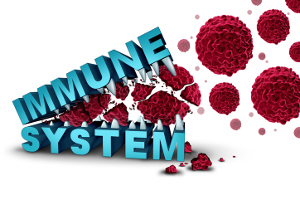 It is not the actual COVID-19 virus that can become lethal. It is the immune system’s overreaction with hyperinflammation and a storm of cytokines that destroys healthy tissue in the lungs, the cardiovascular system, and other places in the body, according to a new article that is published in The Lancet. The capacity of the immune system determines if an infection like COVID-19 is either harmless or life-threatening. For that reason, hygienic measures, masks, isolation, and delayed vaccines are not sufficient. We also need to bolster our immune system against COVID-19 and other pandemics that may occur in the future. Let’s look closer at vitamin C, vitamin D, selenium and zinc, all of which are essential for preventing a well-functioning immune system from going off its rails. What is also worth mentioning is that many people lack these nutrients, especially older people and other exposed groups.
It is not the actual COVID-19 virus that can become lethal. It is the immune system’s overreaction with hyperinflammation and a storm of cytokines that destroys healthy tissue in the lungs, the cardiovascular system, and other places in the body, according to a new article that is published in The Lancet. The capacity of the immune system determines if an infection like COVID-19 is either harmless or life-threatening. For that reason, hygienic measures, masks, isolation, and delayed vaccines are not sufficient. We also need to bolster our immune system against COVID-19 and other pandemics that may occur in the future. Let’s look closer at vitamin C, vitamin D, selenium and zinc, all of which are essential for preventing a well-functioning immune system from going off its rails. What is also worth mentioning is that many people lack these nutrients, especially older people and other exposed groups.








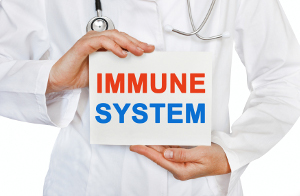 Lack of
Lack of 
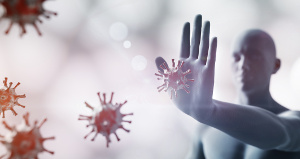 COVID-19 represents a serious global threat against public health and the economy because we still lack a vaccine and effective therapies. When COVID-19 becomes life-threatening it is primarily because the immune defense overreacts with a cytokine storm and hyperinflammation that destroys healthy tissue in the lungs, the circulatory system, and other places. Older people and heart failure patients already suffer from chronic low-grade, uncontrolled inflammation, to which nutrient deficiencies contribute and make the patients increasingly vulnerable. This also applies to people with metabolic syndrome and diabetes, many of which are overweight. For that reason, scientists affiliated with universities and research centers in Norway, Sweden, and Russia have searched the scientific literature to find studies that focus on whether supplementation with vitamin D, selenium, and zinc can help prevent a COVID-19 infection from escalating and becoming life-threatening.
COVID-19 represents a serious global threat against public health and the economy because we still lack a vaccine and effective therapies. When COVID-19 becomes life-threatening it is primarily because the immune defense overreacts with a cytokine storm and hyperinflammation that destroys healthy tissue in the lungs, the circulatory system, and other places. Older people and heart failure patients already suffer from chronic low-grade, uncontrolled inflammation, to which nutrient deficiencies contribute and make the patients increasingly vulnerable. This also applies to people with metabolic syndrome and diabetes, many of which are overweight. For that reason, scientists affiliated with universities and research centers in Norway, Sweden, and Russia have searched the scientific literature to find studies that focus on whether supplementation with vitamin D, selenium, and zinc can help prevent a COVID-19 infection from escalating and becoming life-threatening.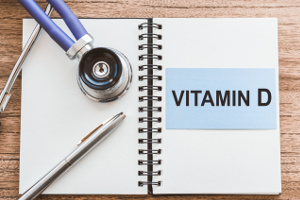 According to a new study based on a number of systematic reviews and meta-analyses, the widespread lack of
According to a new study based on a number of systematic reviews and meta-analyses, the widespread lack of 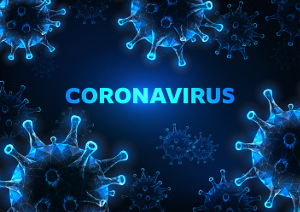 The coronavirus has spread from Wuhan in China to a number of continents, where it has caused massive fear and affected daily life and the global economy. Although most people that get the infection experience a mild course of events, the greatest fear is the potentially life-threatening complications in the respiratory system caused by oxidative stress, which have already taken thousands of human lives. Chinese scientists now call for early intravenous therapy with large doses of vitamin C to prevent oxidative stress and the life-threatening complications that follow in the wake of a derailed immune system. Many researchers also claim that higher intake of vitamin C from dietary sources or supplements help prevent by boosting and regulating the immune system in the upper respiratory tract. The same goes for vitamin D and selenium.
The coronavirus has spread from Wuhan in China to a number of continents, where it has caused massive fear and affected daily life and the global economy. Although most people that get the infection experience a mild course of events, the greatest fear is the potentially life-threatening complications in the respiratory system caused by oxidative stress, which have already taken thousands of human lives. Chinese scientists now call for early intravenous therapy with large doses of vitamin C to prevent oxidative stress and the life-threatening complications that follow in the wake of a derailed immune system. Many researchers also claim that higher intake of vitamin C from dietary sources or supplements help prevent by boosting and regulating the immune system in the upper respiratory tract. The same goes for vitamin D and selenium.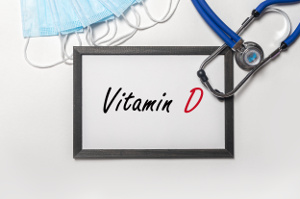 When it comes to battling COVID-19, the main focus is on hygiene, face masks, lockdown, and delayed vaccines. For several months, scientists have urged people to take
When it comes to battling COVID-19, the main focus is on hygiene, face masks, lockdown, and delayed vaccines. For several months, scientists have urged people to take 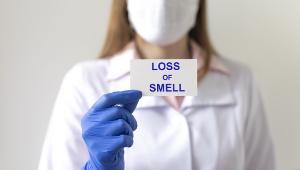 If you lose your sense of smell all of a sudden, it is most likely a sign that you have been infected with the coronavirus, according two large, international studies published in the science journal Chemical Senses. Many COVID-19 patients also lose their sense of taste and even if there are no other complications, it can affect their quality of life. The big question is if there is a link between
If you lose your sense of smell all of a sudden, it is most likely a sign that you have been infected with the coronavirus, according two large, international studies published in the science journal Chemical Senses. Many COVID-19 patients also lose their sense of taste and even if there are no other complications, it can affect their quality of life. The big question is if there is a link between 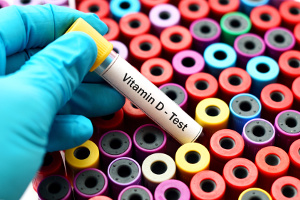 COVID-19 is highly unpredictable and be either totally harmless or life-threatening. Scientists from Oak Ridge National Laboratory in Tennessee recently made a comprehensive genetic analysis that reveals a new hypothesis – the bradykinin hypothesis – which shows why COVID-19 attacks the way it does, why symptoms vary, and why some groups of people are more vulnerable than others. The hypothesis also underpins the importance of getting enough
COVID-19 is highly unpredictable and be either totally harmless or life-threatening. Scientists from Oak Ridge National Laboratory in Tennessee recently made a comprehensive genetic analysis that reveals a new hypothesis – the bradykinin hypothesis – which shows why COVID-19 attacks the way it does, why symptoms vary, and why some groups of people are more vulnerable than others. The hypothesis also underpins the importance of getting enough  It has already been documented that the widespread problems with vitamin D deficiency increase the risk of being infected with COVID-19 and developing life-threatening complications. In a new study, a team of Turkish scientists has demonstrated that swift treatment with
It has already been documented that the widespread problems with vitamin D deficiency increase the risk of being infected with COVID-19 and developing life-threatening complications. In a new study, a team of Turkish scientists has demonstrated that swift treatment with  Several studies have shown that optimizing your blood
Several studies have shown that optimizing your blood  According to a pilot study from Los Angeles, patients with higher blood levels of
According to a pilot study from Los Angeles, patients with higher blood levels of 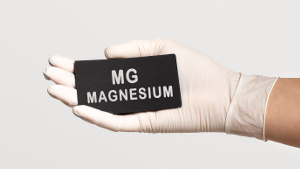
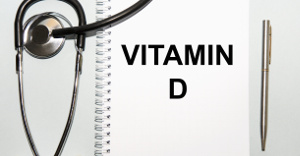
 The COVID-19 pandemic is continuing and we are currently being threatened by B117 and other mutated versions of the virus. Some people are immune, some get mild infections, and some develop life-threatening complications. A team of international scientists has tried to find out why people react so differently. It appears
The COVID-19 pandemic is continuing and we are currently being threatened by B117 and other mutated versions of the virus. Some people are immune, some get mild infections, and some develop life-threatening complications. A team of international scientists has tried to find out why people react so differently. It appears  According to a retrospective study of older COVID-19 patients, lack of
According to a retrospective study of older COVID-19 patients, lack of 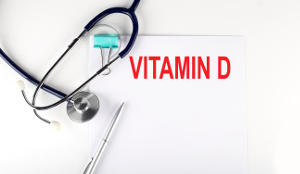
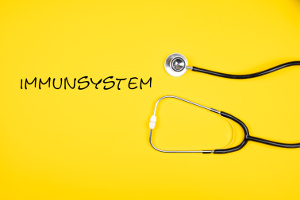 A panel of physicians and professors collaborating with the Swiss Society for Nutrition (SSN) recently reviewed the scientific evidence on the role of micronutrients in supporting a well-functioning immune defense for optimal health with particular focus on viral infections related to COVID-19. They conclude that there is widespread lack of vitamin C, vitamin D, selenium, zinc, and omega-3 fatty acids, all of which are crucial nutrients for the immune system. These deficiencies contribute to new waves of COVID-19 and can cause the infections to become life-threatening. The panel calls for immediate action with relevant focus on diet and supplements.
A panel of physicians and professors collaborating with the Swiss Society for Nutrition (SSN) recently reviewed the scientific evidence on the role of micronutrients in supporting a well-functioning immune defense for optimal health with particular focus on viral infections related to COVID-19. They conclude that there is widespread lack of vitamin C, vitamin D, selenium, zinc, and omega-3 fatty acids, all of which are crucial nutrients for the immune system. These deficiencies contribute to new waves of COVID-19 and can cause the infections to become life-threatening. The panel calls for immediate action with relevant focus on diet and supplements.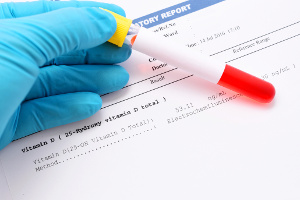 The immune system cannot function without
The immune system cannot function without 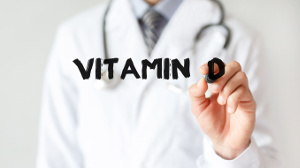 HIV, the virus that causes AIDS, is potentially life-threatening because it attacks central cells in the immune defense. It has also been documented that HIV patients have an increased risk of lacking
HIV, the virus that causes AIDS, is potentially life-threatening because it attacks central cells in the immune defense. It has also been documented that HIV patients have an increased risk of lacking 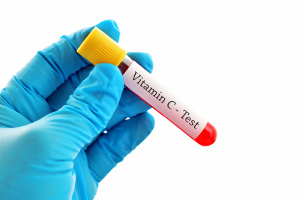 Chronic fatigue commonly follows in the wake of influenza, herpes, COVID-19, and other infections. The immune system does not function optimally, and the tiredness is caused by oxidative stress and inflammation. The condition is often accompanied by poor concentration, depression, and sleep disturbances. Oxidative stress is an imbalance between pro-inflammatory free radicals and protective antioxidants.
Chronic fatigue commonly follows in the wake of influenza, herpes, COVID-19, and other infections. The immune system does not function optimally, and the tiredness is caused by oxidative stress and inflammation. The condition is often accompanied by poor concentration, depression, and sleep disturbances. Oxidative stress is an imbalance between pro-inflammatory free radicals and protective antioxidants. 
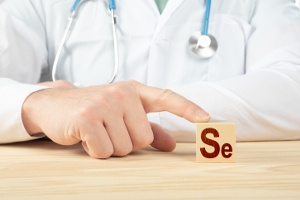 When it comes to COVID-19 and other seasonal virus infections most of the focus is concentrated on vitamin D deficiency. According to a Belgian study, however, lack of selenium and zinc additionally increases the risk of infections, complications, and death, especially among patients who already suffer from chronic diseases. The scientists conclude that supplementation with selenium and zinc may help improve treatments. Selenium and zinc deficiencies are rather common and that is a problem for public health. Even with a healthy diet, it is practically impossible for Europeans to get enough selenium because of the nutrient-depleted farmland. There are also many people with zinc deficiencies due to unhealthy diets, ageing, chronic diseases, and other contributing factors. We must be much more focused on getting enough selenium and zinc, not least for the sake of preventing virus infections and other problems.
When it comes to COVID-19 and other seasonal virus infections most of the focus is concentrated on vitamin D deficiency. According to a Belgian study, however, lack of selenium and zinc additionally increases the risk of infections, complications, and death, especially among patients who already suffer from chronic diseases. The scientists conclude that supplementation with selenium and zinc may help improve treatments. Selenium and zinc deficiencies are rather common and that is a problem for public health. Even with a healthy diet, it is practically impossible for Europeans to get enough selenium because of the nutrient-depleted farmland. There are also many people with zinc deficiencies due to unhealthy diets, ageing, chronic diseases, and other contributing factors. We must be much more focused on getting enough selenium and zinc, not least for the sake of preventing virus infections and other problems. Around one billion people worldwide are believed to lack
Around one billion people worldwide are believed to lack 

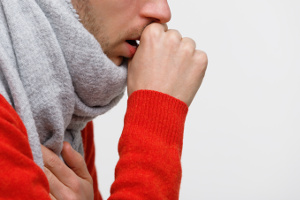 It is hardly a coincidence that sore throats, colds, flus, and related complications such as sinus infections and pneumonia typically circulate during the winter period. They are primarily a result of having low
It is hardly a coincidence that sore throats, colds, flus, and related complications such as sinus infections and pneumonia typically circulate during the winter period. They are primarily a result of having low  A large Israeli population study of over 4.6 million people shows that lack of sunshine and
A large Israeli population study of over 4.6 million people shows that lack of sunshine and 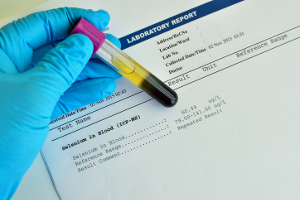 An international science team from the University of Surrey in England has found a link between low
An international science team from the University of Surrey in England has found a link between low 
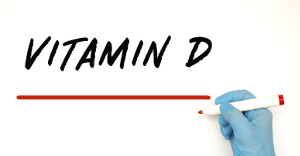 The winter period is the time of year where we typically lack
The winter period is the time of year where we typically lack 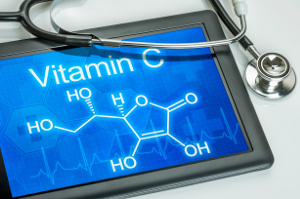 Although the course of disease for most people with COVID-19 is rather mild, the greatest concern is the life-threatening complications in the respiratory tract caused by oxidative stress and cytokine storm where the immune system attacks healthy tissue. Scientists are busy looking for new therapies such as intravenous
Although the course of disease for most people with COVID-19 is rather mild, the greatest concern is the life-threatening complications in the respiratory tract caused by oxidative stress and cytokine storm where the immune system attacks healthy tissue. Scientists are busy looking for new therapies such as intravenous 
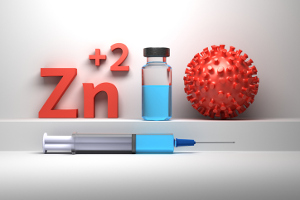 Australian scientists are about to initiate the first clinical trial of intravenous
Australian scientists are about to initiate the first clinical trial of intravenous 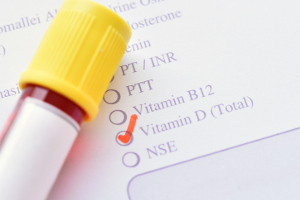 Health authorities worldwide recommend supplements of
Health authorities worldwide recommend supplements of 
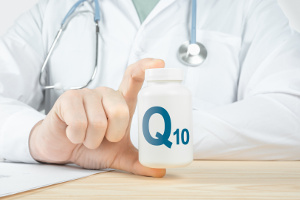 After a COVID-19 infection many people experience chronic symptoms such as fatigue, muscle pain, depression, and sleep disturbances. According to a study that is published in Clinical and Experimental Medicine, supplementing with
After a COVID-19 infection many people experience chronic symptoms such as fatigue, muscle pain, depression, and sleep disturbances. According to a study that is published in Clinical and Experimental Medicine, supplementing with 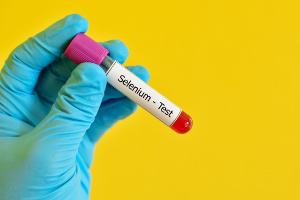 The corona crisis has shed new light on the importance of having a strong immune defense, one that protects us against virus infections in the long run. Selenium plays a vital role for a number of different reasons but, unfortunately, there is widespread deficiency which increases the risk of infections and related complications. In a new review article that is published in International Journal of Molecular Sciences, the authors look closer at selenium’s role in connection with different types of virus infections such as influenza, HIV, and hepatitis with particular focus on COVID-19. The purpose of their article is to inform about new nutritional strategies that may contribute to a strong and well-functioning immune defense – mainly when it comes to COVID-19 and virus types that tend to mutate all the time.
The corona crisis has shed new light on the importance of having a strong immune defense, one that protects us against virus infections in the long run. Selenium plays a vital role for a number of different reasons but, unfortunately, there is widespread deficiency which increases the risk of infections and related complications. In a new review article that is published in International Journal of Molecular Sciences, the authors look closer at selenium’s role in connection with different types of virus infections such as influenza, HIV, and hepatitis with particular focus on COVID-19. The purpose of their article is to inform about new nutritional strategies that may contribute to a strong and well-functioning immune defense – mainly when it comes to COVID-19 and virus types that tend to mutate all the time.
 Our nutritional status is of vital importance to our health and our ability to handle infections.
Our nutritional status is of vital importance to our health and our ability to handle infections.  An abundance of international science links widespread vitamin D deficiency to impaired immune defense, a problem that has contributed to new COVID-19 waves and tends to make the infections life-threatening. The British government has therefore decided to give free vitamin D supplements to 2.2 million seniors, nursing home residents, chronically ill, and other vulnerable people to help combat COVID-19. The whole purpose of this is to slow down the epidemic and put an end to the numerous shutdowns of society, according to an article in the Daily Mail.
An abundance of international science links widespread vitamin D deficiency to impaired immune defense, a problem that has contributed to new COVID-19 waves and tends to make the infections life-threatening. The British government has therefore decided to give free vitamin D supplements to 2.2 million seniors, nursing home residents, chronically ill, and other vulnerable people to help combat COVID-19. The whole purpose of this is to slow down the epidemic and put an end to the numerous shutdowns of society, according to an article in the Daily Mail.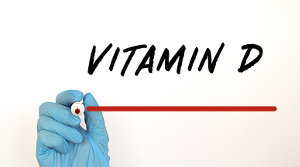
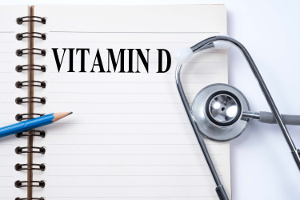
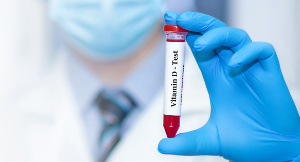
 Vitamin D-deficient patients are twice as likely to sustain life-threatening complications in the wake of a COVID-19 infection, according to a study from Northwestern University in the United States, where scientists collected data from 10 different countries. It is worth making a note of the fact that vitamin D deficiencies are particularly common among older people of color, nursing home residents, overweight people, and chronically ill individuals, all of which are well-known risk groups. In the future fight against COVID-19 and other epidemics, good hygiene, hand sanitizer, isolation, and delayed vaccines are not enough. We must take the right measures to regulate our immune system with
Vitamin D-deficient patients are twice as likely to sustain life-threatening complications in the wake of a COVID-19 infection, according to a study from Northwestern University in the United States, where scientists collected data from 10 different countries. It is worth making a note of the fact that vitamin D deficiencies are particularly common among older people of color, nursing home residents, overweight people, and chronically ill individuals, all of which are well-known risk groups. In the future fight against COVID-19 and other epidemics, good hygiene, hand sanitizer, isolation, and delayed vaccines are not enough. We must take the right measures to regulate our immune system with 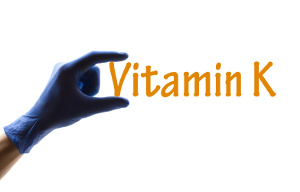 It is already known that severely affected corona patients often lack vitamin D and selenium, both of which are nutrients that are important for the immune system. A team of Danish scientists has now confirmed a Dutch study showing that lack of vitamin K is also widespread among patients with severe cases of the coronavirus. Vitamin K is mainly found in dark, leafy greens. In the body, the nutrient occurs as vitamin K1 and vitamin K2 and they have different functions. Lack of vitamin K or poor utilization of the nutrient may be a result of a poor diet or using certain types of medicine. Although there is no evidence that vitamin K can prevent or mitigate corona infections, the scientists present several interesting hypotheses.
It is already known that severely affected corona patients often lack vitamin D and selenium, both of which are nutrients that are important for the immune system. A team of Danish scientists has now confirmed a Dutch study showing that lack of vitamin K is also widespread among patients with severe cases of the coronavirus. Vitamin K is mainly found in dark, leafy greens. In the body, the nutrient occurs as vitamin K1 and vitamin K2 and they have different functions. Lack of vitamin K or poor utilization of the nutrient may be a result of a poor diet or using certain types of medicine. Although there is no evidence that vitamin K can prevent or mitigate corona infections, the scientists present several interesting hypotheses.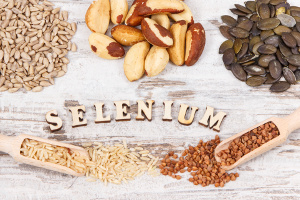 The trace element
The trace element 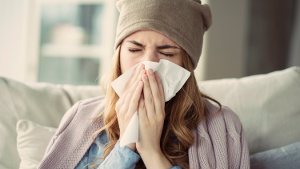
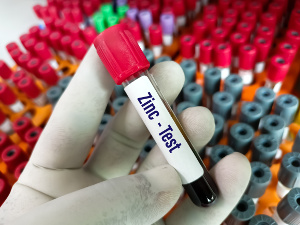
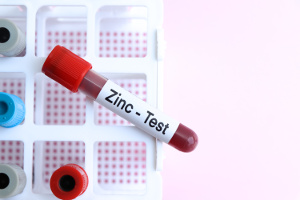
 "After about one week of taking the Q10 supplement I could feel a huge difference," says 23-year old Alan Piccini, who has been suffering from extreme fatigue and muscle aches ever since he was a child.
"After about one week of taking the Q10 supplement I could feel a huge difference," says 23-year old Alan Piccini, who has been suffering from extreme fatigue and muscle aches ever since he was a child. “Taking capsules with co-enzyme Q10 has freed me of the severe side effects of my cholesterol lowering medicine,” Mrs Franken explains.
“Taking capsules with co-enzyme Q10 has freed me of the severe side effects of my cholesterol lowering medicine,” Mrs Franken explains.